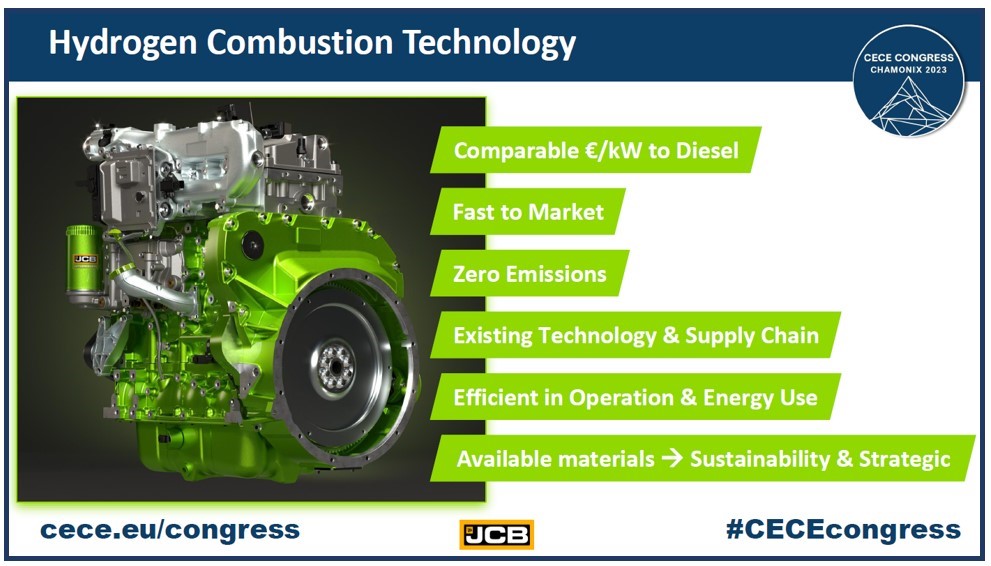Hydrogen use in ICE
Alan Tolley, Advanced Powertrain Technologies Ltd and consultant for JCB, presented a summary of JCB’s activities and views on the road to zero emissions with a focus on hydrogen combustion.
As general comment, Alan pointed out that for a realistic picture of the sector decarbonisation and its possibilities, regulation should look at a full life cycle analysis and not only at emissions ‘in use’. Another crucial point it that not a single technology solution for the construction machinery sector and all options should be made available, this includes direct electric, battery electric and zero carbon hydrogen.
He presented a summary of the possible zero emissions technologies for the sector and the suitable applications, the choice of which will depend on many factors such the energy used, the continuous or intermittent use of the machines, the jobsite location, and the access to utilities. For their product range and with increasing energy demand, JCB considers the electric option, the use of hydrogen and the future use of e-fuels progressively as energy demand and workload increase. Alan stated that different machines would need different technologies, but most applications require a mobile energy source and one which can refuel quickly.
Focusing on hydrogen, JCB explored different technologies initially looking at fuel cell electric, including building a 20T excavator to evaluate the technology. The main challenges identified were (i) the need to remove large amounts of cooling heat from the machine, and as it is a quasi-stationary machine this requires pumping, thereby reducing efficiency, and (ii) the need for all the fluids used (air, fuel and coolant) to be extremely pure, which is impractical in many earthmoving and construction uses. Therefore, the preferred option for JCB in the last year has been the development of internal combustion engines adapted to hydrogen. The engine’s combustion system has been developed to run lean and ‘cool’ And in addition to being zero CO2 emissions can also be considered zero air quality emissions. And in terms of efficiency, for higher load heavier duty applications, the hydrogen ICE can offer higher efficiency when installed in off road machines.
Alan presented the main characteristics that make this option attractive: the cost of the engine including a well-established supply chain, which drives to a fast to market option; the efficiency in operation, the zero emissions and, important specially at the current time in Europe and the West, the strategic availability of materials that makes the option sustainable. He concluded that for a speed of adoption perspective, industry needs a cost-effective solution which maintains existing use factors.
More information can be found in the following video.

Go back to the Technical Bulletin